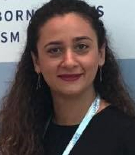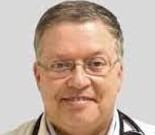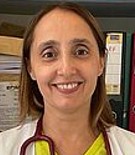Conference Program

Hungarian Angioedema Center of Reference and Excellence, Department of Internal Medicine and Haematology, Semmelweis University, Budapest,
The Hungarian Angioedema Center of Reference and Excellence a (HACRE) was established 30 years ago, has operated at the Semmelweis University and it is a member of the Hungarian Rare Diseases Network, ACARE and ERN-RITA. Our Center ensures a specific comprehensive, integrated care for patients with angioedema mainly for patients with bradykinin mediated angioedema, especially hereditary angioedema (HAE) in accordance with the expectation of international guidelines. The function and structure of HACRE can serve as a model for other rare diseases. It comprises 5 units: the outpatient angioedema clinic, hospital for adult and paediatric in-patients, genetic and complement laboratory and the patient’s organization. All diagnostic tests (complement and genetic) are available that are necessary for establishing the diagnosis of different types of angioedema. Our complement laboratory launched a standardization, quality control program for diagnostic complement laboratories to speed up developments in this area. Until now, more than 200 laboratories in 30 countries have participated. Hotline service for HAE patients around the clock, and emergency care with a multidisciplinary team are provided for all HAE patients. 1500 patients with angioedema are referred to our Center for differential diagnosis, 3500 complement and 400 genetic tests are performed yearly. Currently 208 patients with HAE have been followed up regularly at the outpatient clinic. Clinical and laboratory data of these patients are recorded in the National HAE Registry and a biobank is also maintained. A broad spectrum of novel targeted medicinal products is available with 100% reimbursement in Hungary. The HACRE maintains a good relationship with national and international patient associations, participates in gradual, post-gradual and PhD education for Hungarian and for foreign colleagues and it is involved in several international research collaborations. HACRE is the founder and organizer of the International C1-INH and Angioedema Workshop series and HAENETWORK project. The main goal of this project is to give our know-how for establishing a national HAE Center in countries where it is not available. The HACRE has participated in the development of all international guidelines since 2004, and in 20 multicenter HAE clinical trials. Early and correct diagnosis, personalised treatment with appropriate therapy and awareness raising have contributed significantly to improving the quality of life of patients with this rare disease.

Karolinska University Hospital, Stockholm, Sweden

The Gaucher Unit, Shaare Zedek Medical Center, Jerusalem, Israel
Inherited platelet disorders (IPDs) are rare and include quantitative, qualitative, and combined disorders. These disorders may manifest with bleeding symptoms and are often accompanied by additional congenital manifestations. They can also be associated with severe pathologies such as a high risk of malignancy. The prevalence of IPDs is estimated to range from 1 in 104 to 1 in 106 individuals, with a higher incidence observed when considering less severe disorders like non-syndromic secretion defects. In the presentation, I will overview the most frequently occurring IPDs, including inherited thrombocytopenia (IT) and platelet function disorders (PFDs).

Erasmus MC Sophia Children's Hospital, Rotterdam, The Netherlands

Shaare Zedek Medical Center, Jerusalem, Israel



Rare metabolic diseases encompass a diverse group of genetic disorders characterized by impaired metabolism. These conditions often manifest in infancy or childhood, leading to severe and life-threatening symptoms, and pose significant challenges for patients, families, and healthcare systems. In response to the pressing need for improved care and collaboration in the field of rare metabolic diseases, the European Reference Network for Rare Metabolic Diseases (MetabERN) was established in 2017 under the framework of the European Union’s European Reference Networks initiative.
MetabERN is a pan-European network that brings together healthcare professionals, researchers, and patient organizations with the aim of promoting expertise, knowledge sharing, and multidisciplinary collaboration. It provides a platform for the exchange of best practices, the development of clinical guidelines, and the facilitation of cross-border healthcare for patients with rare metabolic diseases. With 97 healthcare centers from 27 European Union member states and the United Kingdom, and with the endorsement of the Society for the Inborn Errors of Metabolism (SSIEM), MetabERN ensures that patient perspectives are integrated into decision-making processes and that patients and their families have access to reliable information, support, and advocacy.
MetabERN serves as a referral hub, connecting specialized centers in rare inherited metabolic disorders (IMDs), to improve early diagnosis and treatment, promote prevention, simplify access to therapy, and coordinate clinical and research services across Europe. The network utilizes the Clinical Patients Management System (CPMS) to bring expertise to the patient’s bedside. Additionally, MetabERN focuses on the advancement of research into the underlying causes and mechanisms of metabolic diseases. The Unified Registry for Inherited Metabolic Diseases (U-IMD) plays a crucial role in this regard, facilitating the establishment of natural history studies, development and assessment of new treatments and therapies, and improving our understanding of disease processes.
MetabERN also emphasizes knowledge generation and education. The network has indeed developed the Diagnostic Clinical & Therapeutic Education Programme (DCTEP), which currently consists of 11 modules (accredited by the European Accreditation Council for Continuing Medical Education), each including various lessons presented as video lectures by different experts in the field of IMDs, targeted at healthcare and laboratory professionals. The programme is designed to be continuously updated by adding new modules. MetabERN has also designed the Patient Therapeutic Education Programme (PTEP), an online course for patients and their families currently under development.
By facilitating access to the best available care and improving the quality of life for patients and their families, MetabERN strives to enhance patient outcomes and contribute to the development of effective therapies. Through collaboration, knowledge exchange, and innovation, MetabERN represents a significant step forward in addressing the complex challenges associated with rare metabolic diseases. It aims to improve the quality of care and ultimately contribute to the development of effective treatments for individuals affected by these debilitating conditions.

Royal Free Hospital and University College London, UK




HM CINAC | Integrated Neuroscience Centre, Spain

The Children’s Hospital & Institute of Child Health Lahore, Pakistan


Advances in ophthalmology are closely linked to an increased understanding of the morphology and function of the visual system and the underlying genetic and cellular mechanisms. Consideration of genotype and phenotype together will redefine and clarify the historically entrenched clinical nomenclature for inherited retinal diseases (IRDs), aiding and clarifying treatment decisions. All these changes and advances have contributed fundamentally to the convergence of IRD research towards precision or personalized medicine. As a result of decades of intensive research and support from charities, public institutions and private companies, the conditions for future therapeutic options are now becoming available. Early clinical recognition of the diagnosis and clarification of the genetic background can allow patients to try new therapeutic approaches that are currently only available in clinical trials.
This talk focuses on current therapeutic options that have been developed or are under development to cure hereditary retinal diseases or to halt disease progression.

Shaare Zedek Medical Center, Jerusalem, Israel

Carol Davila University of Medicine and Pharmacy, Romania


Shaare Zedek Medical Center, Jerusalem, Israel


Asan Medical Center Children's Hospital, South Korea



This talk explores the potential role of palliative care in providing tailored and compassionate support to individuals with rare diseases. Rare diseases pose unique challenges, including limited treatment options, diagnostic delays, and profound emotional and social impacts on patients and their families. The presentation addresses the fundamental principles of palliative care, emphasizing its potential ability to manage the complex needs of this specific patient population.
The content encompasses a multidisciplinary approach, showcasing the importance of collaboration among healthcare professionals, including the “rare disease specialists”, to create individualized care plans. Symptom management strategies, emotional and psychosocial support, and open communication about prognosis and treatment options are highlighted as essential components of palliative care for rare diseases.
The presentation also explores the dynamic relationship between patients, families, and healthcare providers, emphasizing the significance of patient and family-centered care. Advance care planning and the role of support networks in rare disease communities are discussed to empower individuals in navigating their healthcare journey.
By addressing the distinctive needs of rare disease patients, this presentation advocates for a holistic and compassionate approach to palliative care, contributing to the ongoing dialogue on improving healthcare outcomes and quality of life for patients living with rare diseases.

Background: Type 2 and 3 Gaucher Disease (GD), a rare inherited metabolic disorder, are neuronopathic GD (nGD) and result in infant death or progressive neurological deterioration. Current drug therapies do not cross the blood brain barrier and thus do not treat nGD.
Objectives: Create a nGD-specific patient registry involving patients, caregivers, experts, and industry. The registry aims to understand nGD’s natural progression, correlate global traits and genetics, validate new measures, aid drug evaluations, and identify trial participants.
Methodology: Led by the International Gaucher Alliance (IGA), a web platform was developed with input from stakeholders. Questionnaires (baseline and follow-up) were designed to capture data relevant to patients, including neuronopathic Gaucher-specific Patient Reported Outcomes (nGD-PRO) and Observer Reported Outcomes (nGD-ObsRO). Qualitative interviews with patients and caregivers ensured the use of relevant terminology. Clinicians informed the process of diagnosis confirmation.
Results: The Gaucher Registry for Development, Innovation, and Analysis of Neuronopathic Disease (GARDIAN) is a global, longitudinal registry, open to all ages. It records data every 6 months for 3 years. Data collected will include enzyme/genetic results, patient characteristics, symptoms (neurological/non-neurological), medical history, treatment, and comorbidities. Patient- and caregiver-reported outcomes include the PedsQL, PGI-S, GAD-7, PHQ-9 and an nGD-PRO and nGD-ObsRO to be validated within the registry.
Conclusions: GARDIAN’s patient engagement enhances its value as a real-world data source for clinicians, addressing patient needs. Standardized data collection aids in comprehending nGD experiences and informs future research and trials.
